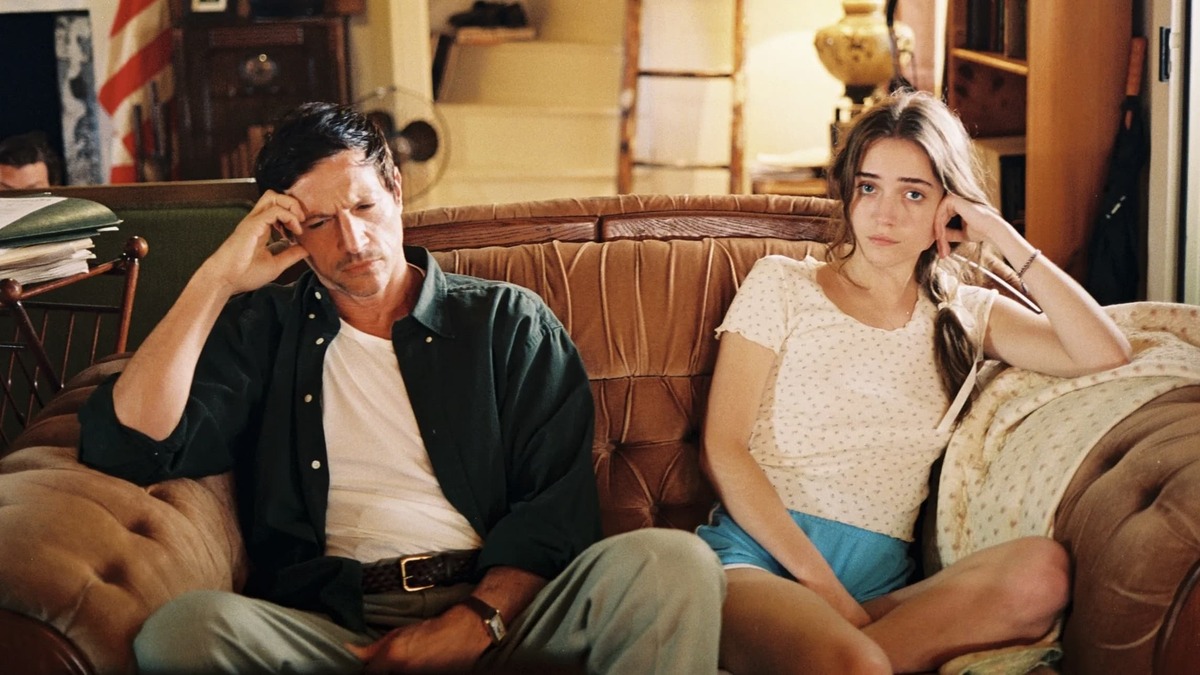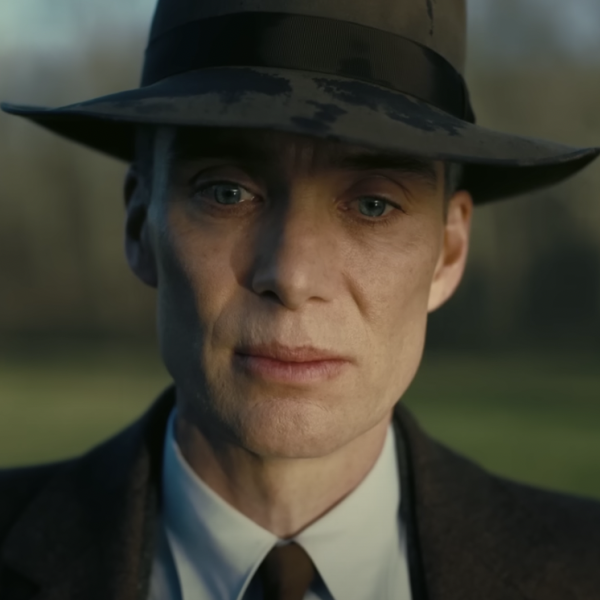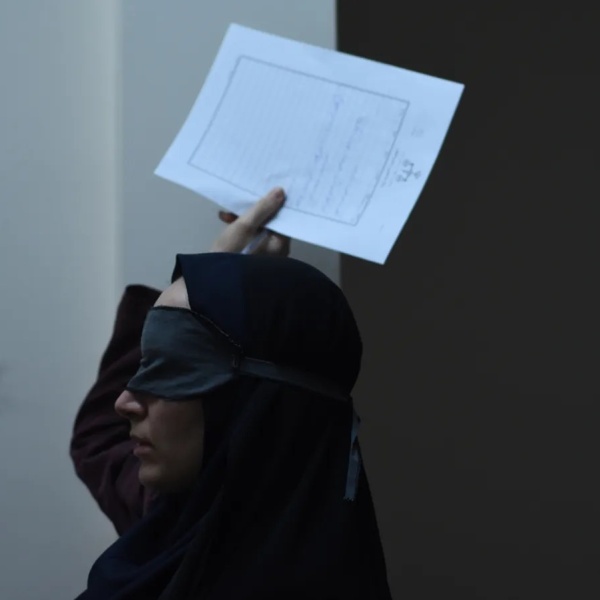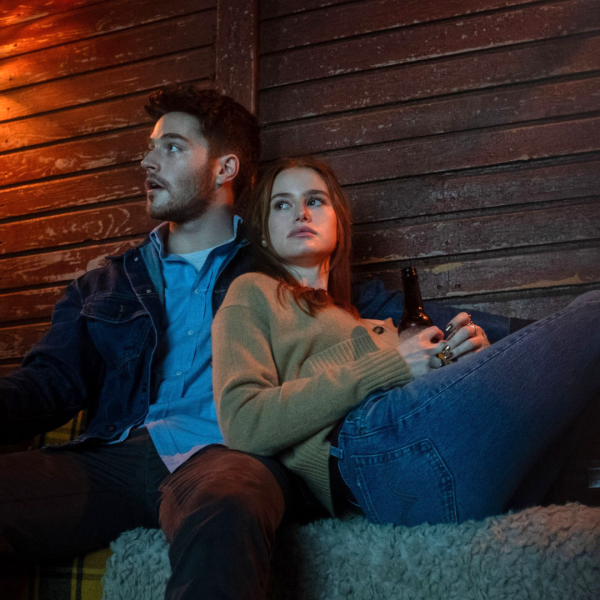This year’s Cannes Film Festival was hardly a letdown from a U.S. distribution standpoint. From Netflix’s surprise acquisition of Todd Haynes’ “May December” to Neon nabbing the Palme d’Or winner “Anatomy of a Fall” and MUBI picking up Aki Kaurismaki’s “Fallen Leaves,” there was no shortage of indications that several Cannes highlights will make their way to American audiences in the months ahead.
Nevertheless, this remains a tricky time for anyone in the acquisitions business, and some of the gems from this year’s lineup still need homes. Here are a few key ones for buyers to consider.
Ryan Lattanzio contributed to this story.
“The Breaking Ice”

A sweet and shimmeringly beautiful sad hot people film about how life can flow and then freeze and then thaw into something entirely new if you let it, Anthony Chen’s “The Breaking Ice” finds hope in the most frigid of places. In this case, that place is the small Chinese border city of Yanji during the depths of its endless winter, where a love triangle of sorts will form between a prickly tour guide (Zhou Dongyu), a rangy local (Qu Chuxiao), and a suicidal rich boy who’s visiting from Shanghai (Liu Haoran).
The Singaporean Chen is something of an outsider to this story himself, and he brings a palpable sense of passing through to a film in which spiritual freedom rubs up against purgatorial immobility. It’s amazing how fast youth can fester when it’s fenced in or denied its future, and “The Breaking Ice” percolates with the leftover energy of people whose collective life force simply won’t let them lie flat and give up.
“The Breaking Ice” is an easy movie to love — easier to love than it is to position in a specialized market this hostile towards low-key subtitled fare. But even if a robust arthouse release may not be in the cards for this one, a smart streamer could capitalize on the growing popularity of Chen’s cast, in addition to the director’s own status as an emerging force (his “Drift” premiered at Sundance earlier this year), and scoop in for a quality acquisition that subscribers will eagerly watch, re-watch, and recommend to their friends. —DE
Sales Contact: Rediance
“The Feeling That the Time for Doing Something Has Passed”

“I love that you never do anything for me…it’s like I don’t even exist.”
That’s what Ann, a depressed thirty-something New Yorker, tells her older on-and-off BDSM lover in the first scene of writer-director Joanna Arnow’s “The Feeling That the Time for Doing Something Has Passed,” in which the filmmaker also stars as Ann. Her heroine is an existentially moribund millennial wasting away in an anonymous-feeling corporate job who passes her time with sexual debasement when not quarreling with her nagging Jewish family.
This clever and disquieting indie unfolds at a clip somnambulant enough to match its lead’s spiritual stupor, whether she’s spreading her ass for her partners (clients?) or on the phone with her needling mother insisting that, no, she isn’t running out of breath despite trudging up and down the Manhattan streets. (She very much is, and running in place within her life.) Kneejerking viewers might draw a cross between Miranda July mumblecore and Lena Dunham unfilteredness here in terms of Arnow’s willingness to degrade herself on camera, but that’s a comparison the filmmaker would probably be annoyed over and one that elides the movie’s uniquely droll vibe. Still, those comparisons (and the clear-eyed take on a provocative subject matter) should guarantee niche interest in this movie alone. —RL
Sales Contact: Loco Films
“Monster”

Hirokazu Kore-eda may have slid into the tiniest of slumps after his 2018 masterpiece “Shoplifters” won the Palme d’Or (and raked in more than $3 million at the American box office alone), but the humanist Japanese auteur is still one of the safest bets in the specialized market, as even last year’s “Broker,” which slightly underperformed with critics and wasn’t submitted for the Oscars, earned seven figures in the U.S. with NEON behind it.
“Monster,” Kore-eda’s latest, represents both a return to form and a half-step in a new direction: A looping, non-chronological melodrama that starts as a psychological horror movie about a bullied tween before revisiting the same events of its first 45 minutes from a series of different (and more gentle) perspectives. Queer themes emerge as the film circles closer to its core, which allow for a fresh and wholly fitting new avenue for Kore-eda’s career-long embrace of acceptance in all of its forms.
With strong reviews and a Best Screenplay prize from Cannes at its back, “Monster” offers distributors a golden opportunity to tap into — and deepen — the strength of Kore-eda’s fanbase, and offer arthouse crowds a movie that will appeal to younger and older crowds alike. —DE
Sales Contacts: GaGa, Wild Bunch International
NOTE: Well Go USA acquired U.S. rights after this story ran.
“The Pot-au-Feu”

The most hardcore food porn this side of “Babette’s Feast” or “Big Night,” and almost certainly the best late ’90s Miramax movie of the 21st century, Tran Anh Hung’s absolutely magnificent “The Pot-au-Feu” would have been a major acquisition had it premiered at Cannes some 25 years ago. A sensual and slow-cooked 19th century romance about France’s most obsessive gastronomy nerd (Benoît Magimel) and the cook who’s shared his kitchen — and occasionally her bedroom — for the last several decades of their lives (Juliette Binoche), Hung’s mouth-watering romance is the kind of movie that might once have played at Lincoln Plaza Cinemas for eight months straight, earning its distributor a massive windfall of passive income in the process.
Perhaps the film’s old school charm had something to do with the rapturous reaction that “The Pot-au-Fea” received at Cannes (where it won the Best Director prize), but any cook knows that simple dishes are often the hardest to perfect, and the grace of Hung’s work here shouldn’t go overlooked. This movie should perform well no matter where it plays (future festival berths will only boost its reputation), but it’s also an experience to be savored; it’s a movie that works best in a crowd where everyone can be felt surrendering to its rhythms, oohing and aahing at the various meals together. “The Pot-au-Feu” would be more at home on IMAX than it would on Netflix, so here’s hoping that someone out there gives it the time and the space to bring hungry arthouse audiences to the table. —DE
Sales Contact: Gaumont
“The Sweet East”

Talia Ryder plays a rebellious teen on a bizarre road trip across America in cinematographer Sean Price Williams’ anarchic debut, written by critic Nick Pinkerton with a funky attitude that scribbles all over the concept of modern-day America with playful glee. As the character careens through a series of unseemly encounters (from Simon Rex as a creepy pedophile and white supremacist to a superficial film shoot), the movie seems game to poke fun at every angle of American identity, from its most horrible extremes to the instinctive repulsion towards people who may be untethered from societal norms rather than conciously rebelling against them.
In the hands of a smart distributor, “The Sweet East” has serious Gen-Z appeal, even as it manages to make fun of the same group that might enjoy the wild ride. That’s a tricky balance for wily movie that winks at its audience while punching it in the gut, but the point is that it leaves a mark — which could yield strong word of mouth, and long-term appeal. —EK
Sales Contact: The Match Factory
“Terrestrial Verses”

A woman with a lost dog, a small girl performing a TikTok dance in a chador, and a worn-out filmmaker trying to get his movie project off the ground are just three of the characters populating the omnibus of single-take vignettes in writer-directors Alireza Khatami and Ali Asgari’s “Terrestrial Verses.” Combined, these nine stories give off a powerful cumulative effect as we see the petty bureaucracies and paper-pushing quotidian blocks to working-class life unfold and whittle these people down. Cultural, religious, and institutional constraints wear down everyday citizens in Tehran in stories that may lack a beginning, middle, or end but still arrive at a well-drawn if eerie and ambiguous conclusion that would feel dystopic if the events weren’t so ordinary.
The sole Iranian entry in the 2023 Cannes Official Selection, “Terrestrial Verses” opens with a panoramic, widescreen shot of the Tehran cityscape. At first gently and then overwhelmingly, the swell and clatter of urban noise, and eventually screaming and sirens and the sounds of panic, fill the scene before a cut-to-black that introduces us to the film’s first character. A new father (Bahram Ark) is told that the name he and his wife has chosen for their infant child, David, is too Western, and unseen lawmen says the government won’t approve their choice. Most of the vignettes are established talking-head documentary interview style, with the interviewers (in the form of police or government pencil pushers) placed behind the camera and never seen.
The film’s rather harrowing takedown of the Iranian-Islamic regime should resonate with cinephiles keen on the works of Jafar Panahi and Mohammad Rasoulof, whose equally outspoken views on the political paradigms churning against them landed the filmmakers in prison and prevented Rasoulof from participating in this year’s Un Certain Regard jury. (“Terrestrial Verses” was part of that selection.) —RL
Sales Contact: Films Boutique






